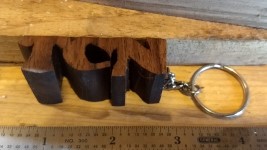A Shepard in Afghanistan Part 2
This is the second part of a dialogue between myself and Mark Shepard, a retired Army Colonel who is working with the Afghanistan Government. Some of the projects that he has worked on include developing a national firefighting curriculum and also a National Disaster Management Plan. So he interacts with Afghani’s on a daily basis when he is in country. He has been shuttling back and forth from the US, to Europe, and the middle East as part of his work. And he has been forthcoming with his observations and thoughts on Afghanistan and the Middle East in general.
In Marks words -What I can tell you that there are some educational, economic and cultural obstacles that it will take years to fix, not months. A country that has been without an education system since the Soviet Union invaded and not much of one prior to that has a long way to go. The younger generation of Afghans are more easily accepting of us, at least more accepting of the educational and need to join the world community. And, in a community that respects its elders, change comes very slowly. Marriages are still arranged and obeying of elders continues until the sons and daughters reach middle age.
In a country with few jobs, there is not much opportunity for the younger generation to advance. So educated young people are leaving the country to seek their fortunes. So this exasperates the problems in that country, when your best and brightest leave it is a drain on the society. Also he noted that half the society is marginalized – women have few opportunities to participate outside the home. He also noted that the Afghani’s liked Western things, but did not particularly like Western society. The further away from Kabul one gets, I believe the less they think Americans are doing the country much good, unless they are directly connected with a Provincial Reconstruction Teams that are a mix of Military and State Department people that are out in the provinces trying to establish stable forms of local government.
As noted before corruption has been a problem in Afghanistan. There is a move afoot to introduce a more Western style rule of law with a local system integrated with a regional and national justice system where the laws are standardized and enforced equally. Rule of law
includes the entire legal complex of a modern state, from a constitution and a legislature to
courts, judges, police, prisons, due process procedures, a commercial code, and anticorruption measures. All things we take for granted here but simply don’t exit there.
Another aspect of their culture that impedes the growth of knowledge is the reluctance to share information. A technician knows that he is invaluable so long as he is the only one in a unit to have that knowledge; once he dispenses it to others he no longer is the only font of knowledge and his power dissipates. This explains the commonplace hoarding of manuals, books, training pamphlets, and other training or logistics literature. So whether it is a private company or a military unit, there this hoarding of knowledge.
Mark feels that it will take generations of Western influence to profoundly influence the culture of Afghanistan. Historically, Afghanistan has been characterized as a nation of loosely confederated warlords who rule over geographically separate domains. And there has been pressure from voices within the national government to revert to the old ways and permit provincial governors to field their own militias. But this would upset the concept of a Republic style of government. So far they have resisted this urge to go back to the way things were. Hopefully with the coalition leaving around 2014, the international community will pick up where we left off and continue to guide the Afghans toward legitimacy. Without that guidance, it will plunge back into civil war. Until this generation of Afghans are gone, I get the feel of despotism more than democracy. The recent unrest in the Middle East has been long in coming. There has always been resentment against the ruling families in nearly every Middle Eastern Country. I see a real danger of the rise of radical Islam given the vacuum created by the recent coupes and change of government. Chances of this are very high. Time will tell if we have planted a seed of Democracy or if Afghanistan will revert back to their centuries old ways once we have left. I think we all wish for that seed to take root.
Sunday, April 17, 2011
Subscribe to:
Post Comments (Atom)









No comments:
Post a Comment